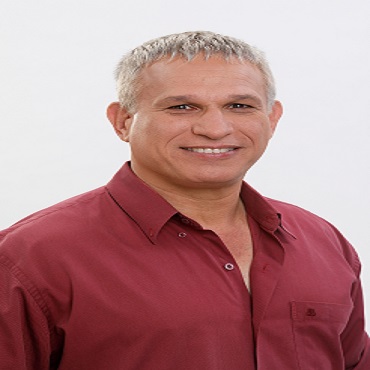Scientific Program

Chen Kugel
Israel National Center of Forensic Medicine, Israel.
Title: Civil-Military Relations: Forensic Pathology Aspects
Biography:
Chen Kugel, MD, School of Medicine, Ben Gurion University, Israel. Trained in forensic medicine in Israel. Fellowships: Cape Town University, South Africa; Sheffield University, UK; Victorian Institute of Forensic Medicine, Melbourne Australia; Armed Forces Institute of Pathology, Washington DC, USA. Served for 21 years as Commander of the Medical Identification Unit, IDF Medical Corps and Advisor to the IDF Surgeon General for Forensic Medicine. Head of forensic medicine examination board of the Scientific Council of the Israel Medical Association. Coordinator of forensic medicine studies in Tel Aviv and Ben Gurion Universities. Currently Director of Israel National Center of Forensic Medicine.
Abstract
In Israel, a special combination of relations between the army and the civilian population exists- most of the adult population is required to serve in the army for a few years and then reserve duty. Most of the population is having a first-degree relative who serves in the army at any given time, and military conflicts occur at any given moment. In addition, Israel has military control on a civilian population in disputed territories in the West Bank. This situation causes great friction and involvement of the army in civilian life.
In Israel there is only one forensic medicine institute that serves both the army and the civilian population. The unified civilian/military medical system can assist for example in identification of human remains since biometric data of those who serves in the army are kept in the IDF. On the other hand a biometric data reservoir is raising ethical and privacy dilemmas.
Veterans receive concessions in granting license to carry weapons. This has defensive implications in the event of a terrorist or other violent attacks, but also potential to increase excessive and illegal use of weapons.
The friction with Palestinian population creates disputes that each side attempts to exploit to advance its narrative. Forensic pathology is of great significance to reveal actual facts. For example, it is possible to clarify disputed points such as allegations of excessive shooting in order to kill (and not to incapacitate), arguments about shooting directions (shooting when the person was not a threat) and claims of the cause of death.
In this talk, I will try to review the main problems in forensic medicine that arises from the interface between the military and the civilian populations, while discussing specific cases.
- Forensic Science: Latest Research, Technology and Innovation
- Crime and Law
- Victimology
- Cyber Security
- Forensic Psychology and Psychiatry
- Forensic Chemistry and Toxicology
- Forensic Engineering
- Forensic Pathology and Diagnosis
- Forensic DNA Analysis
- Forensic Medicine
- Forensic Investigation

